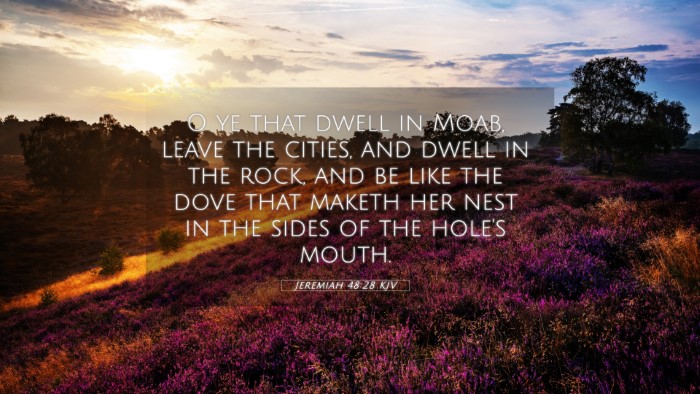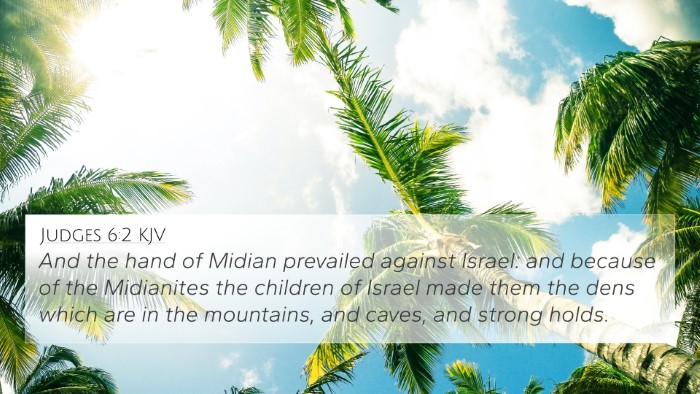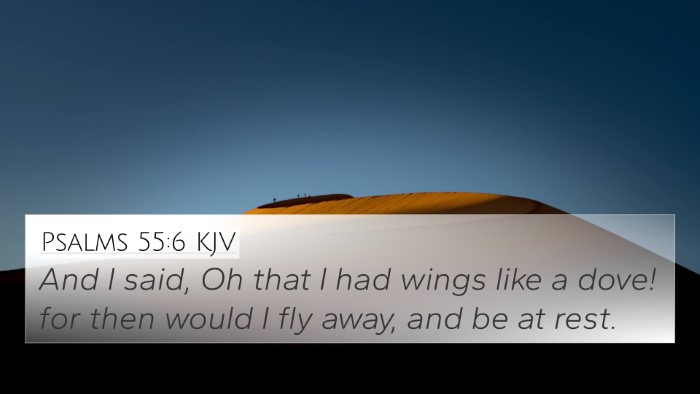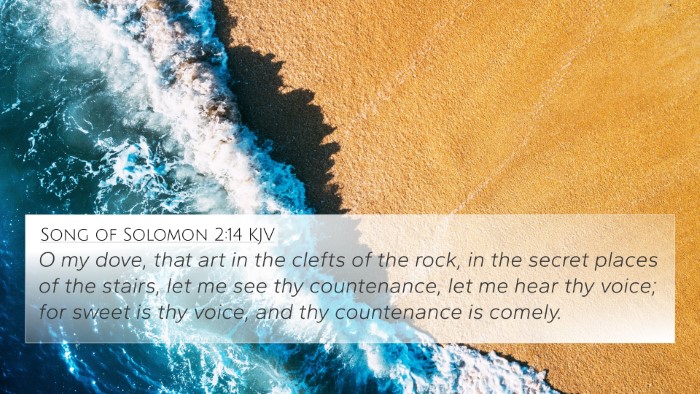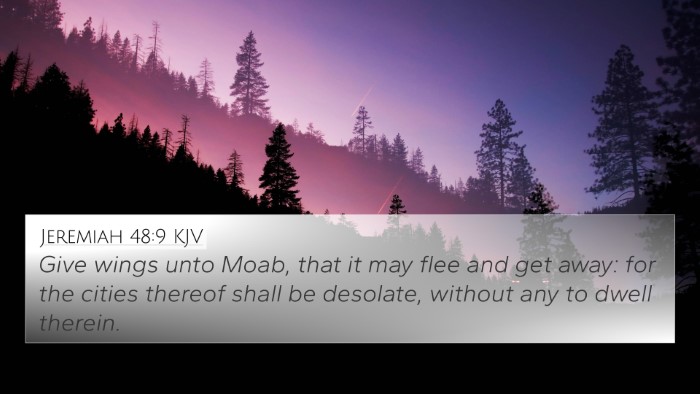Understanding Jeremiah 48:28
Verse Context: Jeremiah 48:28 states, "O ye that dwell in Moab, leave the cities, and dwell in the rock, and be like the dove that maketh her nest in the sides of the hole's mouth." This verse forms part of God's warning to Moab before their impending judgment, emphasizing themes of protection and vulnerability.
Summary of Commentary Insights
Several public domain commentaries, including those by Matthew Henry, Albert Barnes, and Adam Clarke, provide rich insights into the implications of this verse. The following points synthesize their interpretations and contextual notes:
- Call to Flee: The exhortation to flee to the rocks symbolizes a need for safety and refuge in times of imminent danger. Moabites are being urged to abandon their cities to preserve their lives from destruction.
- Symbol of the Dove: The reference to the dove signifies innocence and a desire for peace. The Moabites are compared to doves seeking shelter, highlighting their fragile state amid looming calamity.
- Divine Judgment: The overall context of Jeremiah emphasizes God's judgment against nations. This verse represents a moment of divine grace allowing time to escape the coming wrath.
- Historical Context: Understanding Moab's historical conflicts with Israel enhances the meaning of the text, illustrating the tension between divine justice and mercy.
- Theme of Refuge: The call to dwell in the rocks suggests seeking refuge in God, a recurring theme throughout Scripture, urging believers to trust in divine protection.
- Implications for Leadership: The leadership in Moab is implicitly criticized for their failure to guide the people towards safety and righteousness, showcasing the consequences of poor governance.
- Contrast with Israel: There are notable contrasts between Moab’s downfall and Israel’s ongoing relationship with God, especially through their covenant and consequent protection when they seek refuge in Him.
Cross-References and Thematic Connections
Jeremiah 48:28 can be cross-referenced with various other Bible verses that illuminate its themes of refuge, judgment, and the need for repentance. Here are 10 key cross-references:
- Psalms 46:1: "God is our refuge and strength, a very present help in trouble." - Enforces the idea of turning to God for safety.
- Isaiah 16:4: "Let mine outcasts dwell with thee, Moab; be thou a covert to them from the face of the spoiler." - Reflects God's compassion even in judgment.
- Matthew 24:16: "Then let them which be in Judaea flee into the mountains." - A New Testament parallel urging flight for safety.
- Lamentations 3:19-20: "Remembering mine affliction and my misery, the wormwood and the gall." - Speaks to the sadness of judgment and calls for self-reflection.
- Hebrews 6:18: "That by two immutable things, in which it was impossible for God to lie, we might have a strong consolation." - Stresses the importance of seeking refuge in God's promises.
- Proverbs 18:10: "The name of the Lord is a strong tower: the righteous runneth into it, and is safe." - Illustrates God's role as a sanctuary.
- Revelation 18:4: "And I heard another voice from heaven, saying, Come out of her, My people…" - A future call to flee from impending judgment.
- Joel 3:16: "The Lord also shall roar out of Zion, and utter His voice from Jerusalem; and the heavens and the earth shall shake: but the Lord will be the hope of His people." - Warns of divine judgment while assuring hope.
- Isaiah 30:15: "For thus saith the Lord God, the Holy One of Israel; In returning and rest shall ye be saved; in quietness and in confidence shall be your strength." - A reminder to rely on God for safety.
- Romans 9:25-26: "As he saith also in Osee, I will call them my people, which were not my people; and her beloved, which was not beloved." - Discussing God's broader mercy towards all nations.
Conclusion
In conclusion, Jeremiah 48:28 serves as a powerful reminder of the urgent need for seeking refuge in the face of divine judgment. The insights from public domain commentaries help illuminate the multifaceted themes present in the text. By utilizing tools for Bible cross-referencing, one can explore the connections between this verse and other biblical texts, enriching one’s understanding of scriptural narratives.
Engaging in comparative Bible verse analysis and linking biblical scriptures enhances our comprehension of God's character, His judgments, and the overarching themes of mercy and protection across the entire biblical canon.

